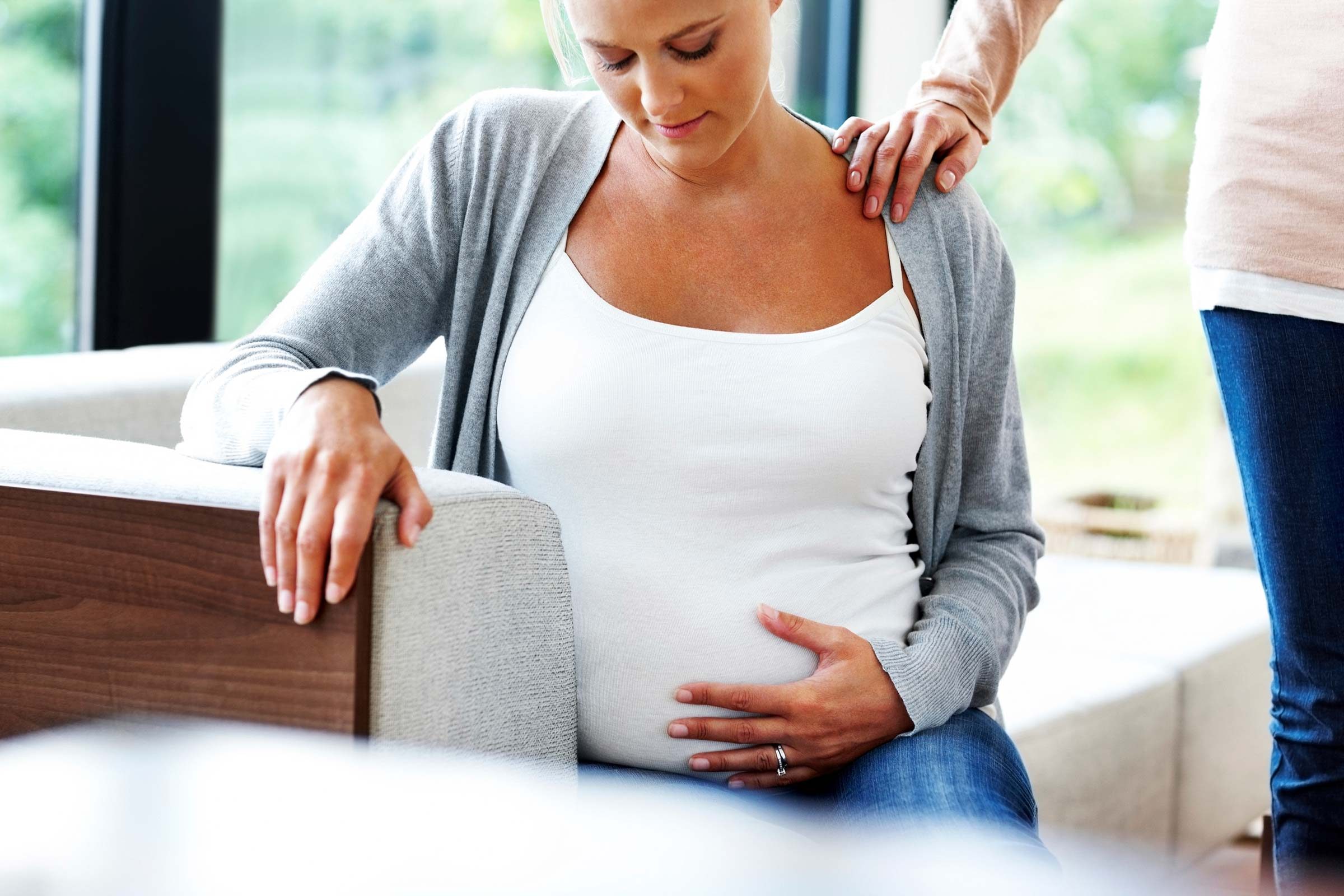
Myth: Miscarriage doesn’t happen very often
On the contrary, miscarriage is a sadly common occurrence. The American College of Obstetricians and Gynecologists (ACOG) puts the rate of miscarriage at about 10 percent among known pregnancies, meaning the actual number is likely higher. If you’ve experienced the heartbreak of a miscarriage, you may feel like you’re alone. But there are many women who share your pain. The problem is that miscarriage is still often considered a taboo topic that few want to discuss openly. “It’s much more common than people realize,” says Robert Atlas, MD, ob-gyn, chair of the department of obstetrics and gynecology at Mercy Medical Center in Baltimore. “I always find it a miracle how nature gets it right so often and sometimes it doesn’t, and it’s just awful.” Miscarriage can be devastating, but in your time of grief, remember that there are other people who understand what you’re going through. Consider joining a support group or seeking other forms of therapy.

Myth: To prevent miscarriage, you need to lay off exercise
Don’t hang up your workout gear just yet if you’re expecting—exercise is an important part of any healthy pregnancy. You can still enjoy a range of low-impact exercises that can actually make you feel better and get your body ready to give birth. That’s not to say that you shouldn’t take some precautions exercising while pregnant. For one thing, you’re more prone to injury during pregnancy thanks to the hormone relaxin. Health explains that this hormone prepares your pelvic joins to prepare to give birth, as well as other ligaments and joints. And some exercises like horseback riding and skiing could expose you to abdominal injury. Dr. Atlas recommends a moderate amount of exercise, such as taking a walk every day. Talk to your doctor about adjusting your exercise regimen so that it’s safe for you and your baby.

Myth: Your hormonal birth control is increasing your chances of miscarriage
Hormonal birth control has gotten a bad rap over the years as a possible link to miscarriage. But as the Mayo Clinic points out, these fears have been scientifically unfounded. The pill doesn’t pose any risks to your pregnancy, but an intrauterine device (IUD) can cause miscarriage or preterm birth if it’s in place when you become pregnant. You have nothing to fear if you previously had an IUD, though. It only becomes a problem if it’s implanted at the time of pregnancy. Be sure to have your IUD removed if you plan on getting pregnant. These are some clues you’re on the wrong birth control.

Myth: Stressing out makes you more likely to miscarry
You can breathe easier knowing that any stress you do experience during your pregnancy won’t make you more likely to miscarry. The thought of miscarriage shouldn’t be another source of anxiety for you during pregnancy, but you should still try to keep stress at a minimum. Extreme stress coupled with depression can increase the risk of preterm birth, delivering a low-weight baby, or having a child with behavioral health issues down the road, according to Fit Pregnancy. However, these outcomes aren’t likely if you just experience normal day-to-day stressors. Take care of yourself and find ways to de-stress, whether that means meditation, massage, or taking a relaxing bath.

Myth: If you’ve miscarried once, you’ll probably miscarry again
A miscarriage is generally a one-time occurrence. If you do want to try getting pregnant again, the odds are typically good. Just 1 percent of women have two or more miscarriages, in what is known as recurrent pregnancy loss, according to ACOG. The risk of miscarriage does go up with more than two incidences, but chances are you’ll eventually have a successful pregnancy. Even the majority of women with unexplained recurrent pregnancy loss (65 percent) will have healthy pregnancies eventually.

Myth: Bleeding and cramping are always signs of miscarriage
Bleeding and cramping are scary experiences to have during pregnancy, but they don’t necessarily signal pregnancy loss. Some symptoms of miscarriage may include lower back pain or abdominal pain, tissue or clotted material expelled from the vagina, and vaginal bleeding. These symptoms should not be ignored, and it’s important to bring them up with your ob-gyn as soon as possible. However, miscarriage isn’t always the reason. Between 15 and 25 percent of women experience some normal bleeding in the first trimester, according to ACOG.

Myth: A miscarriage means you did something wrong in your pregnancy
A lot of people get the facts wrong when it comes to miscarriage, and many of the myths surrounding pregnancy loss can be harmful to women. A national survey on Americans’ misperceptions of miscarriage found that many people are mistaken about the causes of miscarriage. Seventy-six percent of respondents erroneously believed that stress could lead to pregnancy loss, while 64 percent said lifting heavy objects could be to blame. The survey also showed that 41 percent of women who miscarried thought they had done something wrong. True, certain behaviors like smoking and drinking, as well as chronic illness, can increase the risk of miscarriage. But the majority of pregnancy losses are linked to genetic abnormalities beyond a woman’s control. If you do experience recurrent pregnancy loss, your doctor will provide a test to determine an underlying cause. The American Academy of Pediatricians highlights several tests that can detect genetic abnormalities before birth, such as amniocentesis, chorionic villus sampling, and non-invasive prenatal testing.

Myth: You need to wait several months after miscarrying before trying to conceive again
The common advice to wait three months after a miscarriage before trying to get pregnant again doesn’t have much basis in fact. “There’s some old wives’ tale about waiting three cycles after a miscarriage to get pregnant again,” Angela Chaudhari, MD, a gynecologic surgeon and assistant professor in the department of obstetrics and gynecology at Northwestern University Feinberg School of Medicine in Chicago, told Parents. “There was also some old data that perhaps people are more likely to miscarry again if they try immediately after, but that’s all been debunked.” Further, an ACOG study concluded that no evidence exists in favor of waiting to get pregnant again after an early miscarriage. Physically, you’re able to try again by the time of your next menstrual cycle, but you may not be emotionally ready. Follow your own timeline when deciding if you want to get pregnant again.